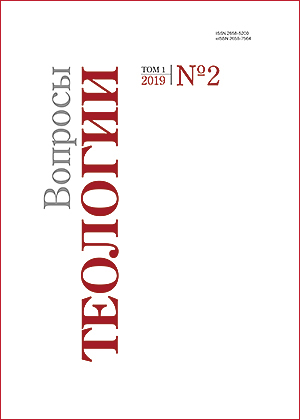Wanderers, Refugees and Pilgrims. Blessed Paisus Velichkovsky and the Problem of Pilgrimage
DOI:
https://doi.org/10.21638/spbu28.2019.204Abstract
St. Paisius Velichkovsky (1722–1794) is known above all as the reformer of spiritual eldership as well as the translator of the patristic texts included in Dobrotolubiye (Philokalia). Less well known is his role as the abbot of the brotherhood founded by him on the Holy Mount which lived on later in monasteries of Moldavia. While the trend towards national liberation as well as separation of national Churches and, at the same time, intra-Orthodox intolerance were growing among the Slavic Balkan peoples, Paisius spiritually guided monks from about ten nationalities, introduced bilingual (Slavic and Romanian) worship services and bilingual doctrinal talks for his brothers, and carried out correspondence in three languages (Slavic, Romanian, Greek). With his own experience of being a wandering monk and with his knowledge of the monastic life of three different cultural and political spaces (the Russian Empire, Moldavia, and Athos), as well as his experience of mutual obedience, Paisius was able to maintain both multilingualism and unanimity in such a heterogeneous brotherhood. Multilingualism, mutual obedience and continuous reading formed the basis on which Paisius’ project was created, carrying not only the traditional elements of Eastern monasticism, but also the features of the epoch, allowing it to be considered also as part of the Enlightenment’s project.
Keywords:
monasticism, wandering, hospitality, pilgrimage, laypeople in the monastery, the Orthodoxy in the 18th century, the Kievan Academy, the Orthodoxy and the Enlightenment
Downloads
References
References
Downloads
Published
Issue
Section
License
Articles of "Issues of Theology" are open access distributed under the terms of the License Agreement with Saint Petersburg State University, which permits to the authors unrestricted distribution and self-archiving free of charge.




